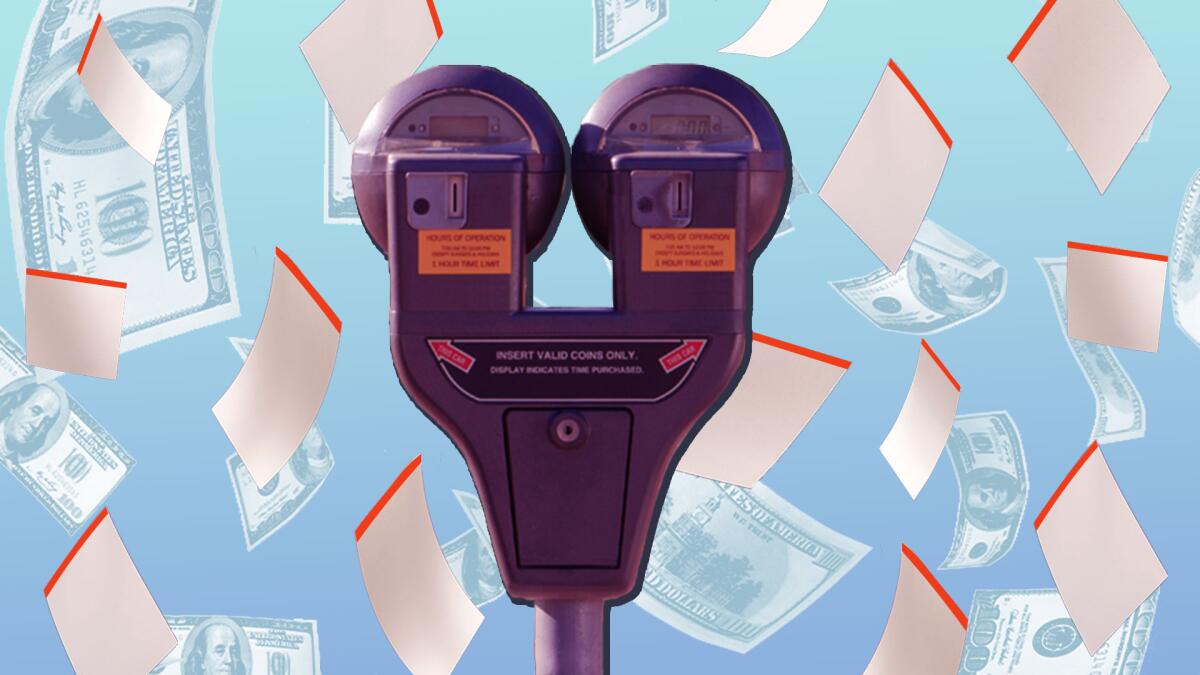A Word, Please: You got to learn this rule, or, that is, you have to

- Share via
“My wife and I cringe at the use of … ‘got’ in daily language: ‘I’m late. I got to go!’ Don’t I have to go?” Grant in Orange County, asked in an email. “Is there a separate usage for ‘have’ and ‘got’? I’m so confused.”
When a reader tells me something makes them cringe, I cringe. The reason: Their peeves usually put me in the awkward position of having to tell them they’re wrong. If a word or phrase is so common that you’ve developed a conditioned response to it, that means that it’s probably standard usage — and therefore acceptable.
Not so with “I got to go.” I scoured my reference books to find a justification for this phrasing and came up empty-handed. None of my usage guides say it’s OK. And according to dictionaries, “got” — the past tense of “get” — doesn’t mean “must” or “have to.” So “I got to go” isn’t a dictionary-sanctioned way of saying “I have to go” or “I must go.”
The best excuse I can find for this use of “got” comes from me personally: When people say, “I got to go,” I assume they’re saying “I’ve” instead of “I” and just glossing over the “ve.” That would be fine because “I’ve got to go,” a contracted form of “I have got to go,” uses “have got” as an idiom meaning “have,” according to Merriam-Webster’s Collegiate Dictionary, and it’s “used in present tense situations usually in informal writing and in ordinary speech.”
“Idiom” is the key word here. It means that a construction that’s not grammatical is still OK because it’s standard. But when you want your English to be better than just OK, you should eschew “I have got” and stick with the simpler and 100% grammatical “I have.”
The advice from dictionaries and language experts on the difference between “adverse” and “averse” leaves grammar columnist June Casagrande wanting.
But “I got” isn’t always wrong. When you mean the verb “get” in the past tense, “I got” is correct. I got promoted. I got a raise. I got a parking ticket. It’s only wrong(ish) in cases where you’re using “got” like an auxiliary verb — especially to introduce an infinitive verb like “to go.”
Even when you mean it as a form of “get,” the phrase “have got” is controversial. Some people say it should be “have gotten.” Others say “have gotten” is wrong and it should be “have got.” In fact, both forms are usually fine. But the differences are interesting.
“Got” is the simple past tense of “get,” and “gotten” is the past participle. So today you get paid. Yesterday you got paid. In the past you have gotten paid. However, “got” is also acceptable as a past participle. So you could say that, in the past, you have got paid. It means the same as “have gotten.” British speakers are more prone to “have got” in this sense, while Americans are more inclined to use “have gotten.”
But “have got” and “have gotten” aren’t just for the past tense. They can also be used in the present to talk about possessing something or obtaining it.
“To many — perhaps most — Americans, ‘have got’ denotes mere possession, while ‘have gotten’ denotes obtaining,” writes Merriam-Webster’s Dictionary of English Usage (which despite the name is a usage guide, not a dictionary, and not the same as Merriam-Webster’s Collegiate Dictionary cited above).
Here are Merriam’s examples: “I haven’t got a dime myself” uses “got” to mean you have something. “However much money you have gotten from Thaw, it is only as much as he wanted to give you” uses “gotten” to mean you acquired something.
So you can see why Grant is confused. But if you want an easy rule, just do what I do: Avoid “I got.” Use “have got” only in informal situations. In more formal usage, use “have” for the present tense, “got” for the simple past and “have gotten” for the perfect tense.
June Casagrande is the author of “The Joy of Syntax: A Simple Guide to All the Grammar You Know You Should Know.” She can be reached at JuneTCN@aol.com.
All the latest on Orange County from Orange County.
Get our free TimesOC newsletter.
You may occasionally receive promotional content from the Daily Pilot.






